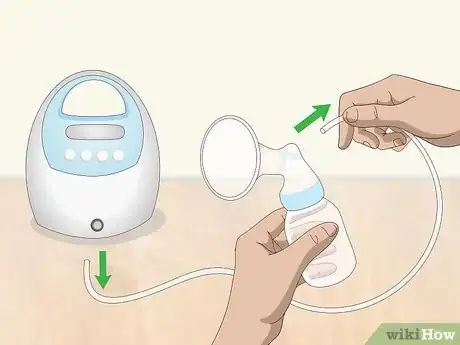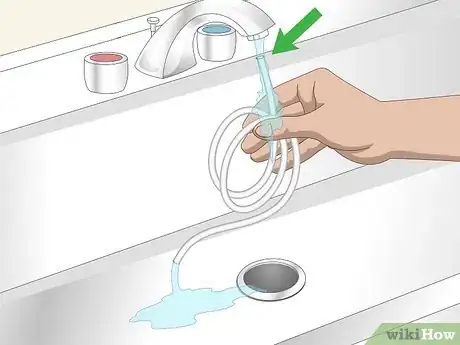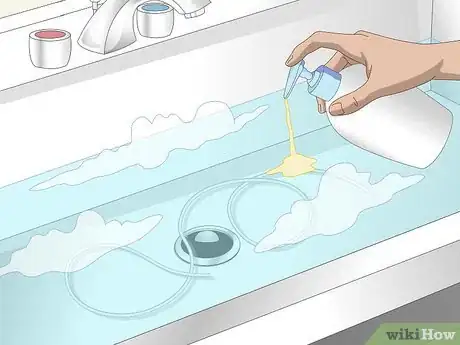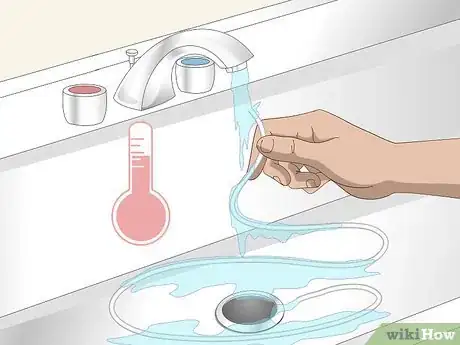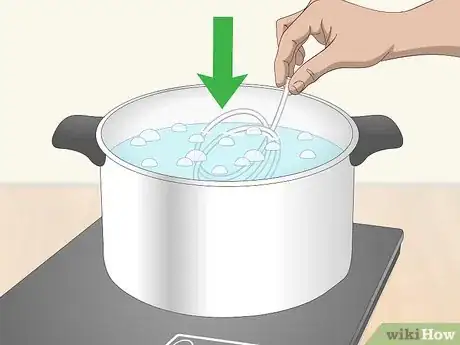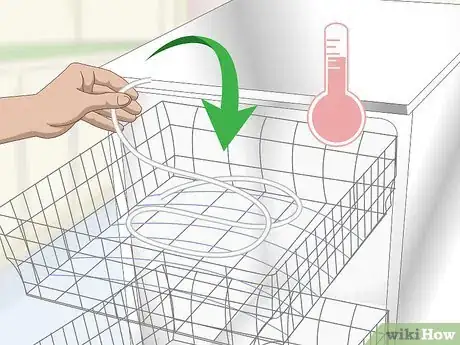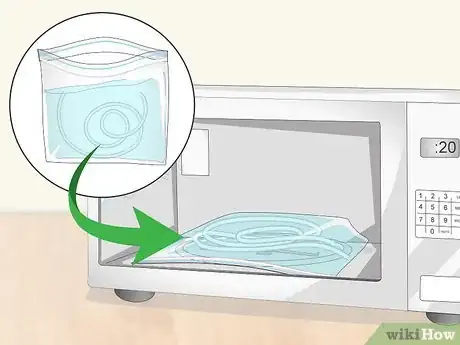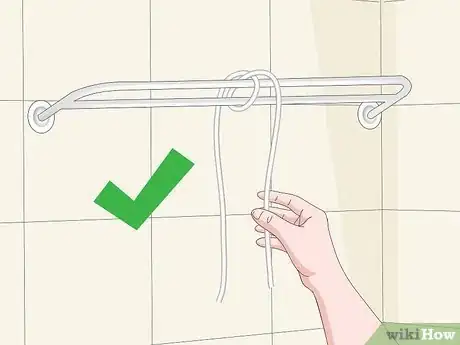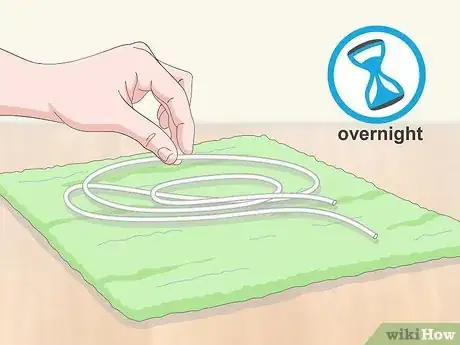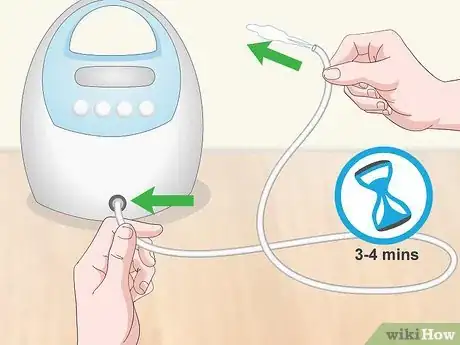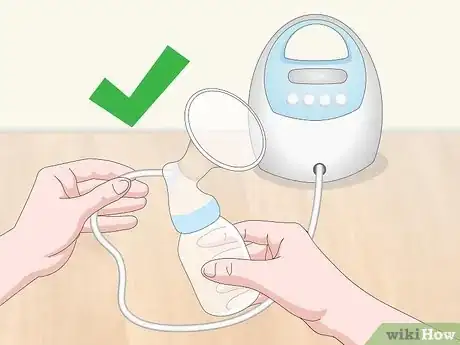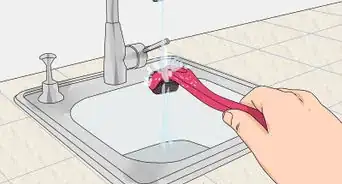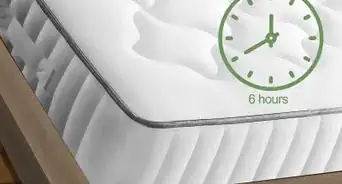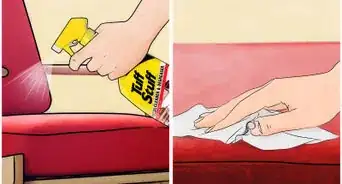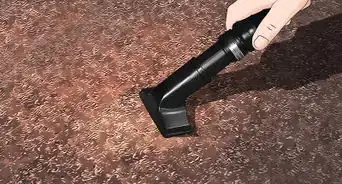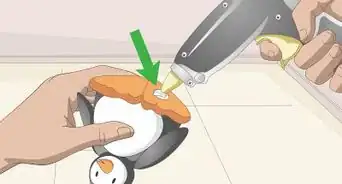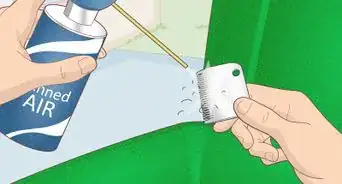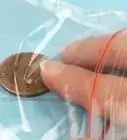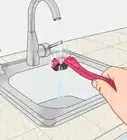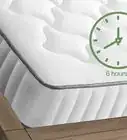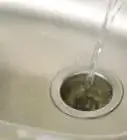This article was co-authored by Rebecca Nguyen, MA. Rebecca Nguyen is a Certified Lactation Consultant and Childbirth Educator. She runs Family Picnic in Chicago, Illinois with her mother Sue Gottschall, where they teach new parents about childbirth, breastfeeding and child development and education. Rebecca taught preschool through 3rd grade for 10 years, and she received her Master’s Degree in Early Childhood Education from the University of Illinois in 2003.
This article has been viewed 85,153 times.
Cleaning the tubing on your breast pump may feel like a chore but it's necessary to protect your baby from germs and bacteria. Wash the tube between every feeding by hand or in the dishwasher. It's also important to sterilize the tubing every 24 hours to kill germs and bacteria. Make sure to dry the tubing thoroughly before using it again. With a few simple steps, you can keep breast pump tubing clean and safe for your bundle of joy.
Steps
Washing the Tubing
-
1Remove the tubing from the breast pump. Turn off the breast pump and unplug it from the power source. Disconnect the tubing from the breast shields.[1]
- Refer to the manufacturer's instructions if you are unsure how to remove the tubing.
-
2Rinse the tubing under running water. Place the tubing in a sink or basin. Run water through the tubing to help remove residue. Keep rinsing until all the milk is gone.[2]Advertisement
-
3Soak the tubing in warm, soapy water. Fill the basin or sink with warm water and a few squirts of dish soap. Choose a mild dish soap without added moisturizers, or pick one formulated specifically for cleaning baby bottles, cups, and toys. Let the tubing soak for 2-3 minutes.[3]
-
4Rinse it thoroughly with warm, running water. Hold the tubing under warm running water to remove the soap. Rinse it out several times, letting the water run through the tubing for 10-15 seconds.[4]
- Make sure there is no more soap left in the tubing before you set it aside to dry.
Sterilizing the Tubing
-
1Put the tubing in boiling water for a thorough sterilization. Let the tubing sit in a pot of boiling water for 5 minutes. Do not add soap or cleaners to the water, as this can get into the tubing.[5]
-
2Use the dishwasher for a quick and easy option. Put the tubing on the top rack of the dishwasher and run the dishwasher on the hot water cycle as well as the heat drying cycle. The heat in the dishwasher will kill any bacteria or germs.[6]
- Make sure the tubing is dishwasher safe.
-
3Sterilize the tubing in the microwave if you're in a pinch. Some breast pump tubing comes with a microwavable bag you can use to sterilize it. Fill the bag with a few inches of water and place the tubing in the bag. Then, seal the bag shut. Put the bag in the microwave and run it on high for 3 minutes.[7]
- Follow the manufacturer's instructions on the back of the bag to ensure you use it correctly.
- Keep in mind microwaveable bags do not meet FDA standards for sterilization, but they can be used if you are in a hurry.
Drying the Tubing
-
1Hang the tubing to let it air dry. Drape the tubing over your dish rack or drying rack so it can air dry. Make sure the tubing is not touching any other items and the ends are open to allow air to flow through the tubing.[8]
-
2Let the tubing dry flat on a dishtowel if you have more time. Another option is to lay the tubing flat on a clean dishtowel so it can dry overnight. The tubing will take longer to dry, perhaps between 8-12 hours.[9]
-
3Attach the tubing to the pump and run it for 3-4 minutes to dry it quickly. To ensure the tubing is completely dry inside, attach it to the pump on one side and turn on the pump. Run the pump for several minutes to help dry any water or condensation in the tube.[10]
- You can also leave the pump running for a few minutes after you are done using it to help remove condensation. This will make cleaning the tubing easier.
-
4Store the tubing with the other pump parts once it has dried completely. Do not store the tubing while it is still wet, as this can allow bacteria and mold to form. Let it dry completely and then keep it with the other parts of the breast pump so the pump is easy to put together as needed.[11]
Expert Q&A
-
QuestionCan you reuse breast pump tubing?
 Rebecca Nguyen, MARebecca Nguyen is a Certified Lactation Consultant and Childbirth Educator. She runs Family Picnic in Chicago, Illinois with her mother Sue Gottschall, where they teach new parents about childbirth, breastfeeding and child development and education. Rebecca taught preschool through 3rd grade for 10 years, and she received her Master’s Degree in Early Childhood Education from the University of Illinois in 2003.
Rebecca Nguyen, MARebecca Nguyen is a Certified Lactation Consultant and Childbirth Educator. She runs Family Picnic in Chicago, Illinois with her mother Sue Gottschall, where they teach new parents about childbirth, breastfeeding and child development and education. Rebecca taught preschool through 3rd grade for 10 years, and she received her Master’s Degree in Early Childhood Education from the University of Illinois in 2003.
International Board Certified Lactation Consultant If you get your pump from someone else who's already used it, you should replace the breast pump tubing. Other than this, breast pump tubing is designed to be durable, so if you clean it properly, there is no need to replace it, unless the suction from your pump seems to diminish.
If you get your pump from someone else who's already used it, you should replace the breast pump tubing. Other than this, breast pump tubing is designed to be durable, so if you clean it properly, there is no need to replace it, unless the suction from your pump seems to diminish.
References
- ↑ http://www.med.umich.edu/1libr/Gyn/Lactation/BreastPumpKit.pdf
- ↑ http://www.med.umich.edu/1libr/Gyn/Lactation/BreastPumpKit.pdf
- ↑ http://www.med.umich.edu/1libr/Gyn/Lactation/BreastPumpKit.pdf
- ↑ https://www.fda.gov/MedicalDevices/ProductsandMedicalProcedures/HomeHealthandConsumer/ConsumerProducts/BreastPumps/ucm061950.htm
- ↑ http://www.med.umich.edu/1libr/Gyn/Lactation/BreastPumpKit.pdf
- ↑ http://www.med.umich.edu/1libr/Gyn/Lactation/BreastPumpKit.pdf
- ↑ http://www.med.umich.edu/1libr/Gyn/Lactation/BreastPumpKit.pdf
- ↑ http://www.med.umich.edu/1libr/Gyn/Lactation/BreastPumpKit.pdf
- ↑ https://www.fda.gov/MedicalDevices/ProductsandMedicalProcedures/HomeHealthandConsumer/ConsumerProducts/BreastPumps/ucm061950.htm
About This Article
To clean your breast pump tubing, rinse it under the faucet until there’s no milk left in it. Then, soak it in warm, soapy water for 2 to 3 minutes. After you’ve soaked the tubing, rinse it a few more times with warm water to remove the soap. To sterilize the tubing, soak it in clean, boiling water for 5 minutes. When it’s sterile, leave it to air dry. Once it’s dry, attach the tubing to the pump and run it for 3-4 minutes to help dry any water or condensation left inside it. For more tips from our Maternity co-author, including how to sterilize your breast pump tubing in the microwave, read on!
